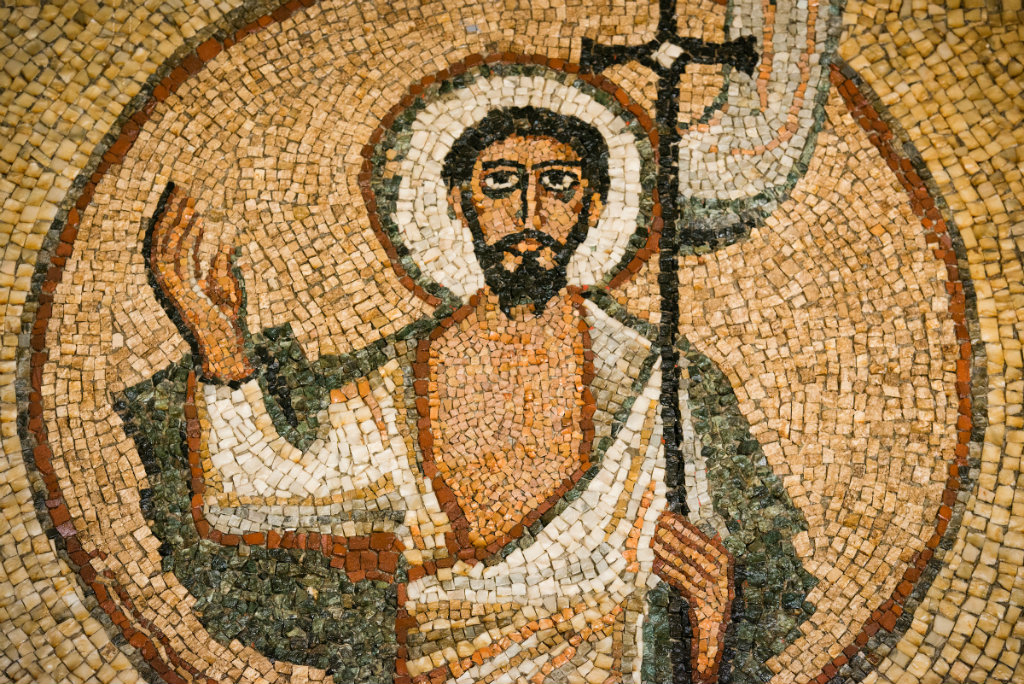Luther warned against speculating about God apart from His incarnation in Jesus Christ.
“True Christian theology, as I often warn you, does not present God to us in His majesty,” wrote Luther in his Commentary on Galatians, “but Christ born of the Virgin as our Mediator and High Priest.” He continues:
For as in His own nature God is immense, incomprehensible, and infinite, so to man’s nature He is intolerable. . . . Therefore whenever you consider the doctrine of justification and wonder how or where or in what condition to find a God who justifies or accepts sinners, then you must know that there is no other God than this Man Jesus Christ. . . . [W]e must look at no other God than this incarnate and human God.[1]
Luther is not confusing the persons of the Trinity. He is emphasizing the biblical truth that we cannot know the Father apart from the Son. As Jesus said, “Whoever has seen me has seen the Father” (John 14:9). “No one who denies the Son has the Father,” wrote the apostle John. “Whoever confesses the Son has the Father also” (1 John 2:23).
Trying to think about God apart from Christ reveals a God who is “intolerable” to our sinful flesh. Consider:
- A God without Christ raises the problem of evil and suffering. We imagine a deity far away, looking down on our world of sin and pain, wondering why He doesn’t do anything about it. God in light of Christ came down from heaven and “has borne our griefs and carried our sorrows” (Isaiah 53:4).
- A God without Christ terrifies us with His wrath against sin. We are sinful and unclean, and we know we cannot stand before His holiness. God in light of Christ offers us grace and forgiveness (Eph. 1:3–10).
- A God without Christ might choose to save us, or He might not. We can never know where we stand. God in light of Christ gives us assurance in His Son, who died for the sins of the world (1 John 2:2).
- A God without Christ seems like an abstraction, an idea, a concept. We think of Him as the answer to an intellectual question, rather than a living being. God in Christ has made Himself tangible (1 John 1:1–3).
- A God without Christ is a distant and disembodied deity. Either He is so far above us, we can hardly know Him, or He is a vague feeling of direction that is lodged within my heart. God in light of Christ is “Immanuel,” God with us (Matt. 1:23) and speaking to us in His Word (John 17:17).
Today, many people have trouble believing in or even conceiving of God. In teaching them about God, we must remember that “there is no other God than this Man Jesus Christ.” We must direct the godless to “this incarnate and human God.”
[1] Martin Luther, Lectures on Galatians: Chapters 1–4, trans. Jaroslav Pelikan, Luther’s Works Vol. 26 (St. Louis: Concordia Publishing House, 1963), pp. 28–29.





Many years ago, I was sitting in the living room of a relative, with about a half dozen of us chatting about life. One relative, a professed practicing Catholic, started a topical discussion about religion. She began quoting the secular humanist manifesto of sorts, reflecting the liberal relativist view that “there are many ways to God,” and it followed that she believed Buddhists, Muslims, and other traditions reach Heaven just as Christians, but through their own way. So I said to her, “Well, doesn’t the Catholic Bible also quote John 14:6, “I am the way, the truth, and the life. No one comes to the Father except through me.?” “Jesus said it, you don’t believe Jesus?”
She hemmed and hesitated, but held to her original view. I could begin to understand why even among Christians, unbelief is not uncommon. I should have reminded her that these other religious traditions cannot take away sin, but the conversation drifted to other areas. There are many people who believe they are Christians as an identity, but the light of truth remains unkindled.